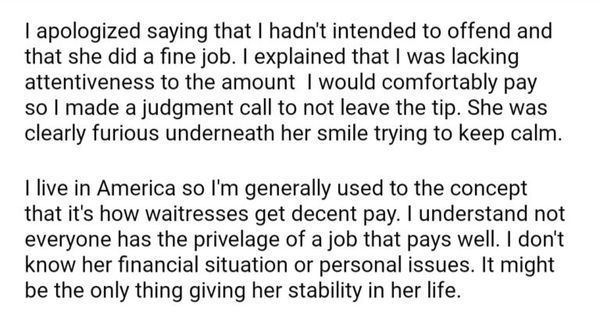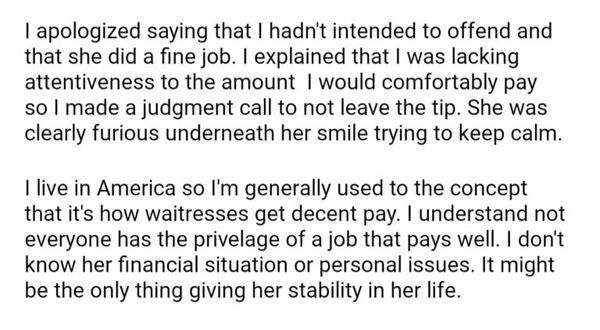
Have you ever been unsure about whether to leave a tip at a fancy restaurant? You’re not alone. Tipping has become a confusing and inconsistent practice in the dining industry. Different countries and regions have their own tipping standards, making it challenging to keep up with the rules, especially when you’re traveling or dining out in an unfamiliar place.
As an older individual, you have likely experienced the confusion and frustration that comes with tipping. It’s time-consuming and could even lead to uncomfortable situations when you’re unsure about the local tipping culture. But here’s the thing: I believe the responsibility for fair compensation should lie with the employer, not the customer.
Restaurants should ensure that their employees are paid a livable wage, rather than relying on customers’ tips to make up for low wages. This would create a fairer distribution of income and alleviate the burden placed on the customer.
I understand that servers and other staff members depend on tips as a significant portion of their income. However, the current system creates an imbalance of power, placing the burden on the customer to supplement the employees’ wages. It’s time for a change.
Let me share my recent experience at a fancy restaurant with you. Even though I received excellent service, I made a controversial decision: I chose not to leave a tip. My intention was not to be cheap but to protest against an inherently flawed system. I wanted to send a message to the restaurant and the industry as a whole that it’s time to reevaluate how we compensate service workers.
I want to clarify that I’m not suggesting we completely abolish tipping. Instead, let’s explore alternative models that can ensure a more equitable distribution of income, such as fair wages and service charges. It’s about creating a system in which everyone involved, from the customers to the employees, can benefit.
I acknowledge that my decision may have negatively impacted the server, and I genuinely feel sorry about that. However, sometimes, we need to take a stand and question the status quo to bring about meaningful change.
So, the next time you find yourself pondering whether or not to leave a tip, I encourage you to think critically about the tipping culture and consider the implications of your actions. Together, we can work towards creating a fairer and more sustainable system for everyone involved.




